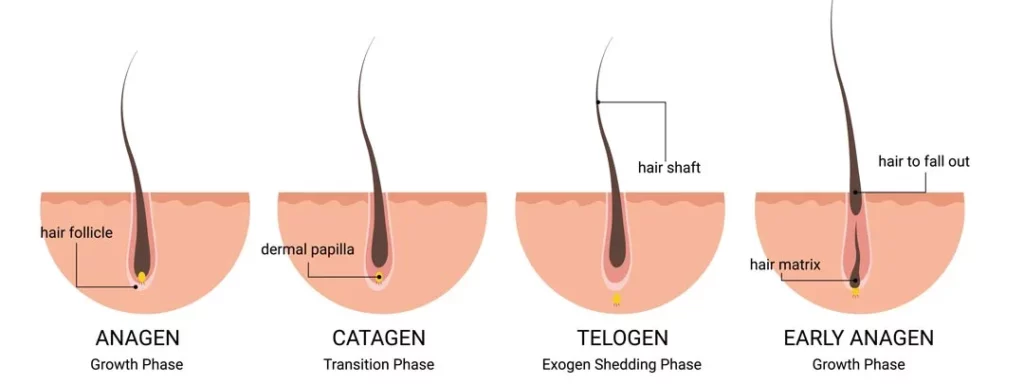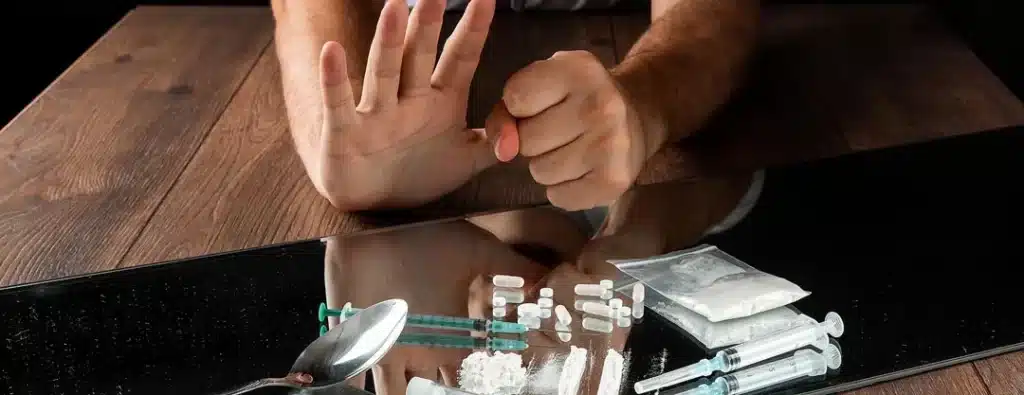Looking at the Lesser Known Consequences of Meth Addiction
Many people know the common side effects of methamphetamine abuse, but it likely reaches further than you imagined. There are lots of consequences that are not talked about as frequently, including meth’s impact on your appearance.
Let’s get to the heart of the matter: Does meth cause hair loss and what can you do about it?
Purpose Healing Center can help you get a handle on your mental health, get to the root cause of your substance abuse, and combat hair loss with a rigorous treatment plan.
Don’t let another day go by without seeking help from skilled professionals on our team. Reach out to us today to learn more about how we can help you overcome meth.
Does Meth Cause Hair Loss: How Drug Abuse Damages Hair Follicles and Limits Hair Growth
One of the lesser-known side effects of substance abuse, particularly related to meth addiction, is drug-induced hair loss. How does hair loss and hair growth happen with meth addiction?
It can impact you in a variety of ways, so it is important to take a comprehensive look at what you can expect.
Understanding Hair Growth Cycles and Drug Abuse
The first thing to understand about hair loss is that drugs can cause hair growth cycles to be disrupted. Hair follicles naturally move through a three-phase growth cycle:
- Anagen: Your hair is in a continual state of growth in this part of the cycle. Most people can grow about a half-inch of hair each month, but this production of hair growth tends to slow down when you are actively using methamphetamines.
- Catagen: Once your hair is finished with the anagen cycle, it moves into a period of rest. Follicles at this stage of the process hold steady: they do not grow and they do not fall out. They maintain the status quo on the number of hair follicles on your scalp.
- Telogen: It is natural for hair to fall out in small quantities, usually 50 to 100 hair follicles per day. If you are losing more than this, it is considered hair loss. Illegal drugs can contribute to exaggerated telogen phases which result in massive hair loss.
There are two major theories on how meth addiction disrupts the hair growth cycle. The first is that it interferes with the anagen phase in a process known as anagen effluvium. Under this umbrella, your hair may not divide the cells as quickly which slows down growth.
It may take days or even weeks from the point of your drug use to see this stage become disrupted.
On the other hand, telogen effluvium can be equally problematic for hair loss. Hair will be sent straight to the rest phase, even before it is supposed to be done growing. As more hair hair enters into telogen phases, it will tend to fall out faster than it should. It may take two to four months for this to surface.
Structural Damage to Hair with Drug Abuse

Meth is among the drugs that cause hair damage at a structural level. Not only does it interfere with the hair growth cycle, but meth also reduces the amount of keratin in your hair follicles. Keratin is important to the strength and resilience of your hair, but it has some serious implications for meth users.
According to one of the first research studies of its kind, participants who used methamphetamines had significant damage to the keratin structure of the hair when observed on a microscopic level. The actual shaft of each strand tested was considered “ribbon-like” and highly damaged. In addition to damage in the keratin structure, there were other forms of damage shown.
Namely, the cuticle layer of the hair was gone in the overwhelming majority of the samples taken. This outer layer is important for the thickness of the hair shaft and its overall strength. Because it is missing in meth users, it results in weaker hair and more breakage (which in turn looks a lot like hair loss).
The Connection Between Hair Loss and Mental Health
Many people underestimate the role of mental health in their hair loss, but it is critical to understand if you want to get to the bottom of how to stimulate hair growth. Severe stress is the first factor of drug-induced hair loss that you may want to consider.
When the body is undergoing severe stress, thinning hair is common. Stress can be the result of drug abuse on the body, co-occurring mental health disorders like anxiety and depression, and disrupted sleep patterns from meth use.
This phenomenon has been best studied in mice. Researchers removed their adrenal glands, the part of the body responsible for releasing the stress hormone in both mice and humans. With these vital glands missing, researchers found that they were able to again promote healthy hair growth more rapidly. It also did not slow down as mice aged.
They found that hair follicles remain in the rest phase and will not regrow as long as there is an influx of stress hormones in the body.
Tactile Hallucinations and Hair Loss with Methamphetamines
Last, but not least, it is crucial to take a look at a faster way that meth contributes to hair loss. Drug abuse like this can also lead to tactile hallucinations meaning that you may get the sense of bugs crawling on the skin, extreme itching, and other sensations that are less pleasant.
In your altered state of mind, you may try to act to resolve these hallucinations.
Many people are familiar with the skin-picking that comes with meth use, but it isn’t the only issue that might present itself. Perceived scalp irritation or the sensation of things crawling in the hair might lead to pulling the hair follicle out altogether.
This results in quick hair loss that is dependent upon how hard you pull and how frequently you have tactile hallucinations. The other modes of hair loss can be quite slow and build up over time, but this one can be problematic faster.
Can You Reverse Hair Loss from Methamphetamine Use? 3 Ways to Get Started

The good news if you are concerned about your shed hair is that it does not have to be permanent. Illegal drugs can lead to serious issues with your body’s ability to maintain normal processes. Don’t allow your drug use to lead to permanent hair loss.
Focus on hair regrowth with some of these strategies.
1) Quit Drug Abuse As Soon As Possible
If you suddenly get sober, you might be able to arrest these processes sooner rather than later. That means that the first step for hair growth is to seek professional help for your drug abuse issue. It can take months of sobriety to reset your hair cycle into something that approximates a normal cycle.
The drug has to work its way out of your system and out of the cells that have already been impacted. As hair growth occurs, you will find that your hair becomes thicker and stronger. At Purpose Healing Center, we may also be able to connect you with a dermatologist who can assist you with strengthening the hair you have.
2) Correct Nutritional Deficiencies
People who fall into substance abuse and illegal drugs often do not take the time to properly care for their bodies. The first thing that tends to fall by the wayside is your nutrition. Unfortunately, this does not have a positive impact on your hair regrowth.
Eating nutritious foods can help with healthy hair growth. You need to learn how to properly care for yourself again, starting with what you put into your body at each meal. Purpose Healing Center will make sure you consume a balanced diet while you reside in our residential treatment facility and help you to make lasting changes to your diet.
3) Managing Stress for Hair Regrowth
One of the most important components of a robust treatment plan is stress management. Stress often leads people to abuse drugs which in turn leads to hair loss. You need to put new coping skills in place. We can help you turn from drugs that cause hair loss to healthier coping skills like deep breathing, yoga, art, music, and more.
With a better handle on your stress, you are less likely to fall into substance abuse and you are less likely to see the negative impacts of stress on your hair. If you can change the body’s response to stressful situations, you might be able to change cortisol levels which contribute to hair loss.
Overcome Meth (and Hair Loss) at Purpose Healing Center

If you are worried about your hair falling out due to methamphetamine use, it is time to get substance abuse under control. Purpose Healing Center is here to guide you through the healing process starting with intensive services that focus on detox and living life sober.
We can help you make the lifestyle changes required to see your hair grow back.
Contact us today, and let our friendly admissions team walk you through the first steps to receiving treatment. We can answer your questions and verify your insurance benefits in a quick and easy phone call today!
References
- Tosi, A., Misciali, C., Piraccini, B. M., Peluso, A. M., & Bardazzi, F. (1994). Drug-induced hair loss and hair growth. Incidence, management and avoidance. Drug safety, 10(4), 310–317.
- Turkmenoglu, F. P., Kasirga, U. B., & Celik, H. H. (2015). Ultra-structural hair alterations of drug abusers: a scanning electron microscopic investigation. International journal of clinical and experimental medicine, 8(6), 8803–8811.
- U.S. Department of Health and Human Services. (2021, April 20). How stress causes hair loss. National Institutes of Health.



